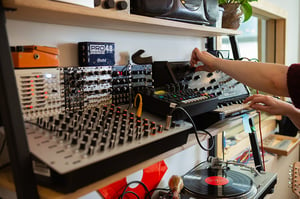Seven music producers weigh in on the relationship between gear acquisition and inspiration.
Geeking out about gear comes with the territory of the electronic music producer. When you care about creating the perfect sound, certain studio toys can seem like a necessity, but when an obsession with buying gets in the way of practice and skills, it can do more harm to your output (and bank balance) than good. We spoke to seven music producers about their approaches to buying music equipment, and whether it’s really possible to achieve more with less. Here’s what they said...
Explore the potential of plugins
Ed Fitzpatrick aka Suze, Electronic Music Production Alumni
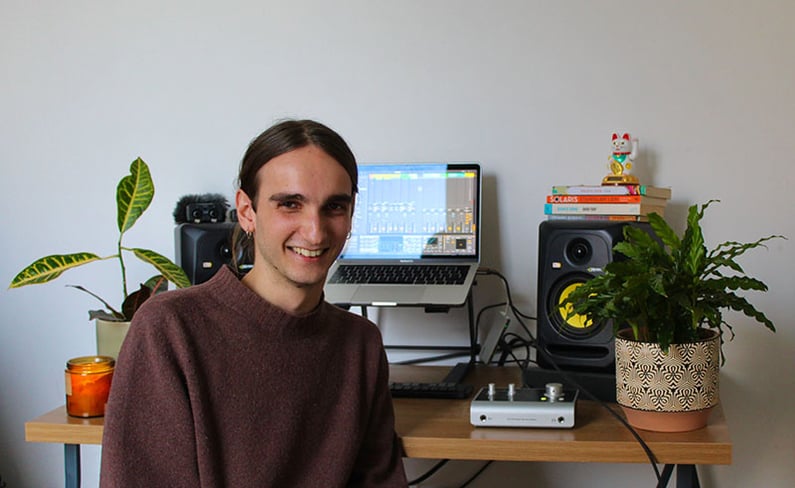
“I've always worked almost entirely within a DAW. I feel as though more interesting and unique sounds are generated when exploring the full potential of a small number of plugins/pieces of equipment, than when only scratching the surface of a plethora of gear. Developing a certain level of expertise and a personal relationship with a select few tools will also contribute to a producer developing a unique musical voice. The ‘equipment = inspiration’ perspective also likely deters individuals from less privileged backgrounds from getting into music production, which is obviously not a good thing.
“I feel it’s both possible and desirable to practice conscious consumption as a music producer. Purchasing music equipment from smaller distributors and brands could be a start. It may also be beneficial to research the working practices of companies you are buying from to ensure they are ethically up to scratch, whether this is in terms of sourcing manufacturing materials or labour.”
Try before you buy
Bex Ashford, Founder of WOMXN*S PRODUCER GROUP
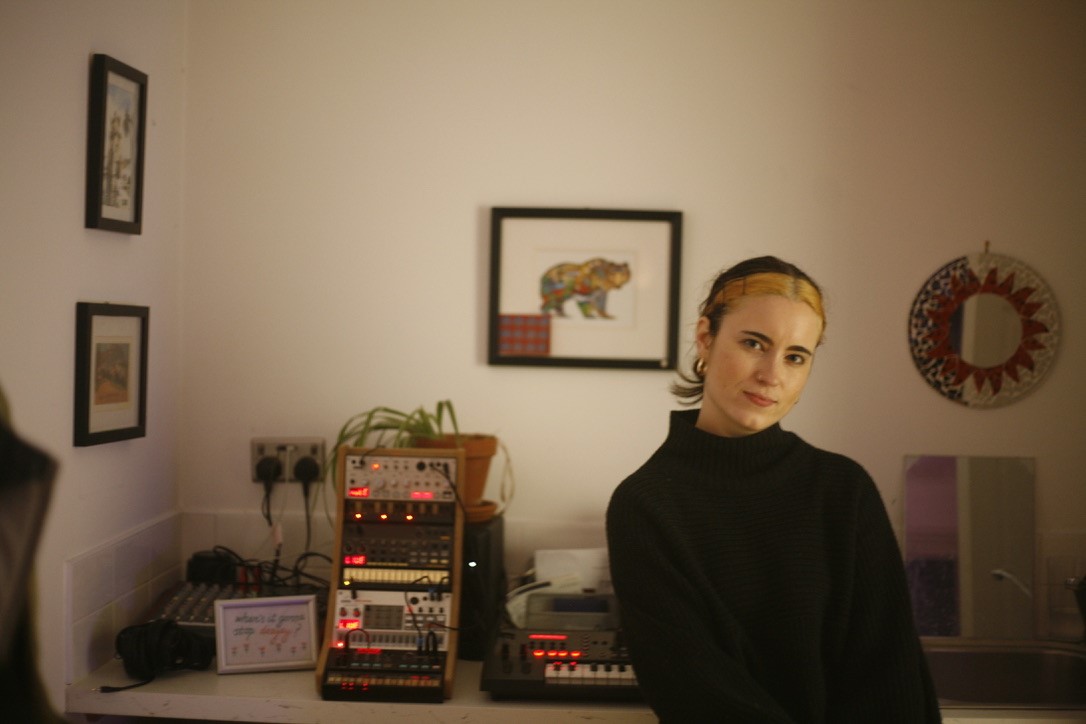
“I just want to have minimal gear that I use regularly and know inside out. If that’s two or three bits that’s cool. The rise of ‘minimalism’ has gained traction over the past few years - I don’t identify as a ‘minimalist’ but hold to the principle of only having things around you that you use, bring you joy and add value to your life. I also have digital plugins and software I like to use, which means less stuff. Music production has changed a lot over the past 30 years - the development and easy access of software has flipped the need for loads of physical kit on its head.
"I would recommend getting to know your workflow and sound for a while before buying a lot of gear. This will highlight what you need and what will add to your productions once you know yourself better.
"Another thing is to try before you buy. There are places you can go to for weekend stays like Devon Analogue, where you can hire out a studio which has ALL THE GEAR and record loads of sounds in one session to use at a later date.
"A final point is about source. This applies to software and hardware. Where are your sounds coming from? Can you buy a pack from an artist who you want to support? Can you buy local? Can you buy second-hand from friends? Me and my housemate recently bought some Korg units, an Allen and Heath Mixer and an Arturia Beatstep from our friend who was moving to Berlin and wanted to do a quick sale. It felt like a nice way to do it as he knew where the gear was going and could show us his preferred set up tips and tricks from having built a setup over a few years."
Research, research, research
Adam Berwick aka Berwick, MA Innovation in Sound graduate and Industry Liaison Officer at dBs Institute
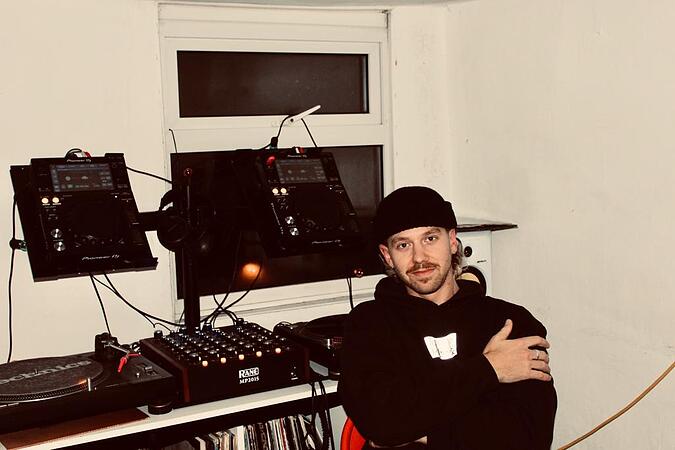
“Music hardware can be expensive and become an overwhelming part of a producers life. All too often the desire to broaden knowledge and technological repertoire can result in mindless spending. Before purchasing anything, I like to read reviews, watch tutorials and scan through online manuals. It allows me to get an idea of the functionality and also how it may pair with other pieces of hardware.
“Everyone’s creativity is different and music technology can be so diverse in its functionality that one piece of gear could inspire an entire album. Be picky about your next bit of hardware. One piece can go a very long way.”
Ask yourself why you're buying
Tugkan Multu aka Blurd Vision, Electronic Music Production Alumni
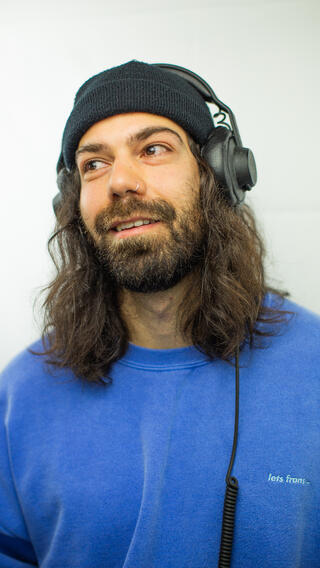 “A new piece of equipment can take you back to your curious childlike state. It becomes a new foreign object that you have to build a relationship with. You also re-enter the experiment stage and start building brand new processes through your curiosity, experimentation and the limitations of the new gear.
“A new piece of equipment can take you back to your curious childlike state. It becomes a new foreign object that you have to build a relationship with. You also re-enter the experiment stage and start building brand new processes through your curiosity, experimentation and the limitations of the new gear.
“To be clear though, more music gear does not mean more inspiration. It can in fact have the opposite effect as you need to spend time learning how to use each piece of kit to its full potential which takes time away from getting creative and finishing music – something that I fell into the trap of a few years back. Also, there can be a lot of sync and recording issues which then require you to spend more on MIDI sync connectivity and expensive audio interfaces and mixing consoles to connect everything up.
“Mindful buying can be hard to practice in music production and I've definitely been through the process so to speak. It's easy to always want more hardware, speakers, audio interfaces, instruments and the list goes on. After going down the rabbit hole there has to be a point you step back and question why you are buying? It depends on the individual and what they have acquired so far. In my experience, the more you buy into something like 'analogue' sound or full hardware setups for jams etc, then the more you will want the hardware equivalent of your DAW which, with a DAW's capabilities, would cost you hundreds of thousands with the amount of MIDI and audio effects, instruments, mixing console and the list goes on. Some tips from me to help you manage this:
- Ask yourself – why do you need that piece of kit? What's its purpose? Do you already have something that can do something similar? Could you combine what you have (hardware/software) to achieve similar results?
- Are you currently finishing enough music to allow yourself to take time away from the music-making process to learn the new instrument?
- Have you mastered all the equipment you have to its full capacity and hit a limitation in what it can do?
- Are you in desperate need of new inspiration/ a way to shake up your process and is a new piece of gear the only way to get it?
- Be really honest with yourself and ask if buying a new piece of equipment is the 'real' solution to your problem or if there is something else that needs to be addressed. This is something I’ve seen over and over again where people buy to feel better, when the real issue might be that they are losing the flow, not having enough time to produce etc. After a few weeks the real problems resurface, they buy more and it becomes an endless cycle.
“A final note from me – a great artist can make great music with bad equipment but a bad artist can't make great music, even with the best equipment.”
Tugkan is also dBs’ Employability and Engagement Officer. Read our recent interview with him to find out more about his work.
Think about the full life cycle of your instruments
Ben Chilton aka Those Who Came Before Us aka Strangling Glass, Modular Guru at Elevator Sound
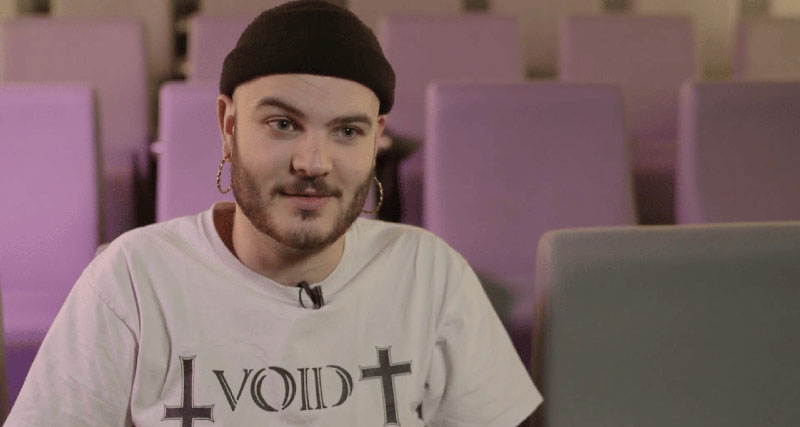
“I think that different bits of kit can open up different doors, but there's so much inspiration to be found through working within limitations. If you've just got one monophonic synth, but you've heard these big fat chords somewhere, you might be inspired to the record notes in, one at a time, and then play around with the sounds.
“Granted that the instruments we buy are quite often mass-produced and made of plastics and metals, they’re not the most environmentally friendly thing. Obviously, I'm slightly biased in saying this, but if you are going to be buying new instruments – finding an independent seller to support is always a fantastic way of easing the guilt a little bit. Knowing that you're actually supporting a small team of people or a community is a really nice way around it.
“There are a few other things to consider when trying to be a conscious consumer of hardware. Firstly, do your research to be sure you’re buying machines that are going to last and work for you for a long time. Then, if things break, make sure that you’re getting them repaired, or sending them back to be replaced under warranty rather than just binning them. And then, when you’ve run finally the course with a certain machine, try to find someone to hand it on to. If you know someone who wants to make tunes but doesn’t really have a way in, then give it to them, rather than just charity-shopping it or chucking it. I think that’s a good way to go.”
Learn your equipment
Mike Steventon, Music Production and Sound Engineering Alumni
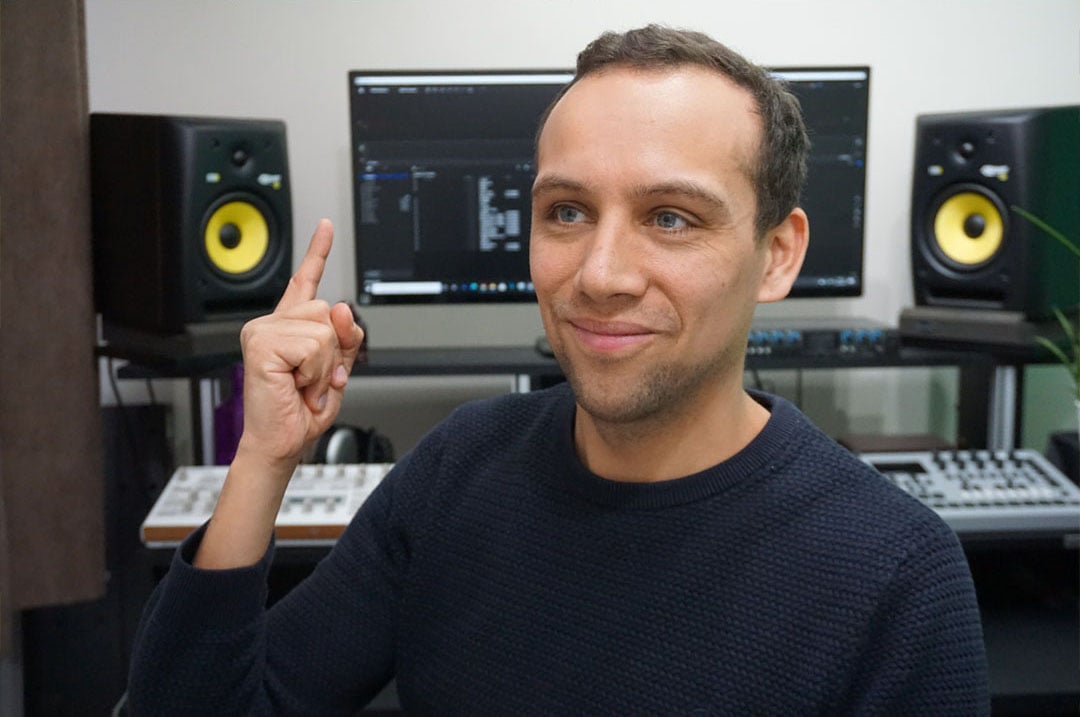
“There’s no denying gear can be inspiring. A well-designed piece of equipment can force your hand creatively due to the design and constraints of the system. The obvious examples are Acid House and Techno. If we didn't have the Roland 303 or 909 those genres wouldn't have developed as they did. Currently, I love the way I can get totally engrossed in my Elektron Analog Rytm and Analog 4. The results I can get from them are totally different from using other drum machines and synths.
“There is a flip side though – if you have too much gear and not enough time this can hamper your spark as you don't spend the time learning each piece properly. You also don't give yourself time to get in the zone creatively and you can end up feeling frustrated having so many fun pieces and not being able to use them. This can really crush your inspiration. I have actually downsized my setup for that reason and will not purchase another piece unless I think it’s really special and useful.
“Choosing your software and equipment wisely can have a really positive effect on your creative process if you focus your energy on really learning certain pieces of gear.”
Be conscious in your listening as well as your buying
Louise Turnbull, Music Production and Sound Engineering Student

“I think a smaller setup has some real advantages, particularly when it comes to avoiding choice paralysis and decision fatigue. It also means you can dedicate more time to learning each piece of gear that you own, which helps creativity to flow with fewer technical obstacles. Conscious consumerism to me sounds a lot like that, squeezing as much as we can out of what we’ve got.
“Often different gear (or a mass amount of gear) presents a different workflow or headspace, which can be an amazing way to let curiosity and experimentation drive the process. I must say though, I don’t think inspiration is ever linear and whether we respond better creatively to less gear or more might just come down to how our visceral artistic intentions manifest as individuals. As a guitar/bassist, I just happen to find a more minimal workflow optimum for the majority of compositions.
“We could also consider being conscious consumers not only of the gear we purchase but the music that we listen to. Being more conscious of music being an individual’s unique expression, rather than an opportunity for comparison.”
READ MORE
How to get started in music production without spending any money
At dBs, we believe everyone should have the opportunity to produce music, no matter what their financial position may be. That’s why we provide all students with access to a diverse range of bookable equipment as well as our state-of-the-art studio spaces, so you can focus on fine-tuning your sound without too much unnecessary spending.
Find out more about the benefits of being part of our community on our website.

